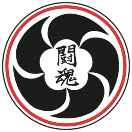FAQs
How is Judo different from Karate or other martial arts?
Judo is more of a sport than Karate or other forms of martial arts. Judo is an Olympic event and judo is more akin to wrestling with jackets than to Karate or Tae Kwon Do. Olympic judo has no kicks or punches. Scoring is by throwing your opponent to the ground, strangle holds, arm bars, and hold down techniques.
How old should children be to start?
There is not a definitive age, but many children are ready to start in our Junior Class around age 7. It is more of a developmental issue than a strict age issue. A child must know their left from their right, be able to follow four consecutive instructions, and be able to work independently from his or her parents. We have our Cubby Judo Class for 4, 5 & 6 year old children to teach them basic Judo movements and etiquette, develop muscle coordination and listening skills.
We recommend any parent considering enrolling their child in Judo bring him or her to at least two classes to observe prior to joining.
What happens after I sign up?
Judoka with certification of Gokyu (green belt) or higher can start at any time and practice any evening. New members with little or no judo experience should start the first Monday and Wednesday of each month for their orientation and thereafter will attend the fundamentals classes on Monday and Wednesday evenings until a rank of Rokyu (yellow belt) is reached. At that time, they can attend any practice.
Do you have contracts?
All students must complete a dojo membership agreement form and a COVID-19 waiver. There is no contract form. At registration, new students pay a registration fee for Tohkon which includes your first 2 months dues, a new judo-gi, a Tohkon patch, insurance and processing fee.
After that, monthly training dues should be paid on the first week of each month. Any attendance to a practice during the course of a month requires the student to pay the full month's training dues.
Are private lessons available?
Because all of our black belt instructors are volunteers and have professions outside of judo, private lessons are not available. Judo practice is founded on the spirit of synergy and mutual welfare and benefit. The more participants in a class, the wider are the variety of styles and learning opportunities. Our dojo is the largest Judo school east of the Mississippi River and students will have many opportunities to learn from a variety of instructors and fellow judoka.
